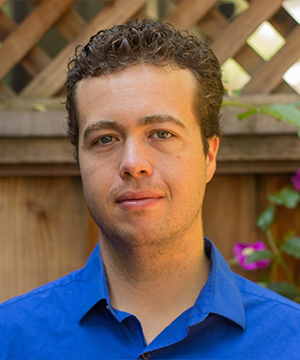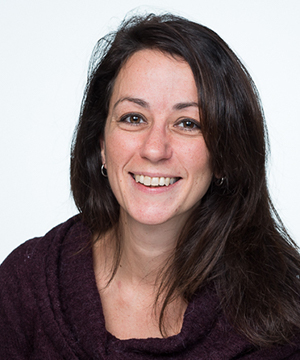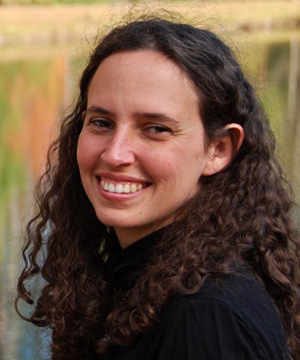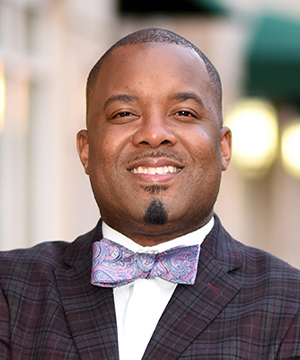New Faculty 2021-2022

Brandon Barnett
Assistant Professor, Department of Chemistry
Brandon Barnett joins the faculty as an assistant professor, after serving as a postdoctoral fellow at the University of California, Berkeley.
Barnett’s research draws from fields including inorganic chemistry, materials science, and chemical engineering. His doctoral training in inorganic chemistry concentrated on organometallic chemistry, which is the study of compounds containing bonds between carbon and a metal. As a postdoctoral fellow, he studied how solid-state materials containing permanent pores—akin to tiny, nanoscale sponges—can be used to store gaseous fuels and separate mixtures of small molecules. His research group at Rochester is interested in developing new materials that can mimic certain functions of solid-state porous materials, including the abilities to store gases and help perform challenging reactions. The research is important in developing greener technologies, such as more efficient batteries and energy-saving alternatives to liquid fuels.
Barnett’s research has been funded by the American Chemical Society and the National Science Foundation and has appeared in peer-reviewed publications including Energy and Environmental Science, Chemical Science, and Journal of the American Chemical Society.
In addition to his research, Barnett teaches Organometallics (Chem 421/422) and Nanoporous Materials Chemistry (Chem 446).
- Undergraduate degree: BS, chemistry, Pepperdine University
- Graduate degree: PhD, chemistry, University of California, San Diego
- Most recent appointment: postdoctoral fellow, University of California, Berkeley

Dora Biro
Professor, Department of Brain and Cognitive Sciences
Dora Biro joins the Rochester faculty as a professor of brain and cognitive sciences. Most recently a professor of animal behavior in the Department of Zoology at the University of Oxford, Biro focuses her research on the mechanisms that underlie group living in animals.
Using field observations, GPS, accelerometry, head-mounted sensors, camera-trapping, facial recognition software, and other data-gathering techniques, combined with mathematical modeling, Biro explores social behavior, problem solving, and learning in birds and primates. She’s particularly interested in how individual animals with conflicting knowledge or preferences make decisions together and the consequences of those decisions for collective performance.
Biro also conducts research on spatial cognition and the role of vision in avian navigation, developmental and cultural aspects of tool-using skills in wild chimpanzees, regional differences in behavior in wild baboons, and symbolic and numerical cognition in captive chimpanzees.
A University Research Fellow of the Royal Society and a tutorial fellow at St. Hugh’s College, Biro has held postdoctoral research positions at Oxford and has been a visiting professor at the Primate Research Institute of Kyoto University in Japan.
- Undergraduate degree: BA, biological sciences, University of Oxford
- Graduate degree: DPhil, animal behavior, University of Oxford
- Most recent appointment: professor of animal behavior, University of Oxford

Erin Black
Assistant Professor, Department of Earth and Environmental Sciences
Erin Black joins the faculty as an assistant professor, after serving as a postdoctoral research scientist at Columbia University’s Lamont-Doherty Earth Observatory.
Black’s research focuses on understanding the drivers of the marine carbon cycle and the global cycling of biologically important elements, such as iron. Her research group utilizes uranium-thorium isotope geochemistry to track elements like carbon as they enter, move within, and exit the world’s oceans. Improving the estimates of elements in the marine cycle helps scientists to better understand and quantify the role that oceans play in global climate change. Black is actively involved in field research in the coastal North Atlantic, the central Pacific, and the Arctic Ocean.
Black’s research has been funded by the Ocean Frontier Institute and NASA and has appeared in peer-reviewed publications such as Proceedings of the National Academy of Sciences and Environmental Science and Technology. She serves as a student mentor for the Society for Women in Marine Science and has also served as a student mentor for the Ocean Sciences Meeting Mentoring Program.
In addition to her research, Black will be teaching Environmental Geochemistry in spring 2022.
- Undergraduate degree: BA, geology, Skidmore College
- Graduate degrees: MS, earth sciences, Dartmouth College; PhD, chemical oceanography, Massachusetts Institute of Technology and Woods Hole Oceanographic Institution
- Most recent appointment: postdoctoral research scientist, Lamont-Doherty Earth Observatory at Columbia University

Rachel Glade
Assistant Professor, Department of Earth and Environmental Sciences
Rachel Glade joins the faculty as an assistant professor, after serving as a postdoctoral research associate at Los Alamos National Laboratory.
Glade’s research draws from fields including geomorphology, fluid mechanics, and materials science to understand how sediment dynamics influence the evolution of Earth’s surface. Using a combination of theory, numerical models, lab experiments, and field work, she is particularly interested in the formation of spatial patterns both large—for example, rock exposures visible from space—and small—grains of sand on a riverbed.
Her current work focuses on Arctic landscapes, where ice, water, and soil interact to form striking, large-scale patterns that are linked to the formation of patterns found in fluids, such as paint drops or icing dripping down a cake. Glade’s research is important in understanding how cold landscapes and sediment erosion and deposition on hillslopes and in rivers will change over time in the presence of climate change. Glade’s research has appeared in peer-reviewed publications including Proceedings of the National Academy of Sciences and Geology.
In addition to her research, Glade will be mentoring undergraduates, graduate students, and postdoctoral research associates and teaching geomorphology, the study of Earth’s surface and how it changes over time.
- Undergraduate degree: BA, geology, University of Pennsylvania
- Graduate degrees: PhD, geology, University of Colorado, Boulder
- Most recent appointment: postdoctoral research associate, Los Alamos National Laboratory

Jeffrey McCune, Jr.
Associate Professor, English; Director of the Frederick Douglass Institute
Jeffrey McCune joins Rochester from Washington University in St. Louis, where he was an associate professor of women, gender, and sexuality studies and of African and African American studies. He will also serve as director of the Frederick Douglass Institute (FDI).
McCune is the author of the award-winning book Sexual Discretion: Black Masculinity and the Politics of Passing (University of Chicago Press, 2014). His next book, Disobedient Reading: An Experiment in Seeing Black, will be published by University of California Press. McCune has published widely in the area of race, gender, sexuality, and performance. He is the co-editor of the New Sexual Worlds book series at University of California Press.
McCune has personal and academic connections to FDI and the University. In 2006–07, he was a postdoctoral fellow at the institute and a faculty associate at the University’s Susan B. Anthony Institute for Gender and Women’s Studies. During his time at WashU, McCune was the director of the Mellon Mays Undergraduate Fellowship Program, where he designed new curriculum, coordinated mentorship programs, and developed programming to advance research projects.
As director of FDI, McCune will bring together faculty, students, and staff from across academic disciplines to collaborate in the study of the African diaspora and offer programming that explores and promotes African and African American studies at the University. He will also oversee the institute’s interdepartmental undergraduate major and minor programs as well as the institute’s graduate certificate, and pre- and postdoctoral fellowships.
- Undergraduate degree: BA, speech/theater and secondary education, Cornell College
- Graduate degrees: MA, communications studies, University of Nebraska–Lincoln; PhD, performance studies, with a focus on African American and gender studies, Northwestern University
- Most recent appointment: associate professor of women, gender, and sexuality studies and of African and African American studies, Washington University in St. Louis
